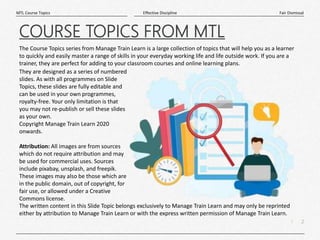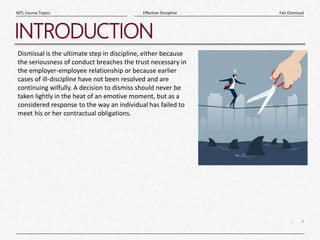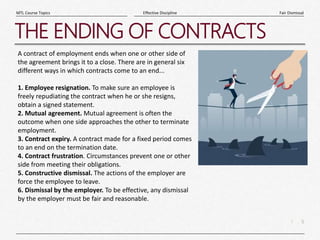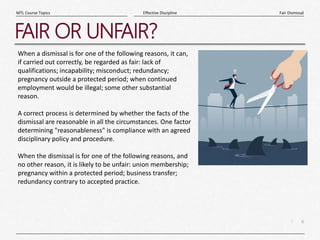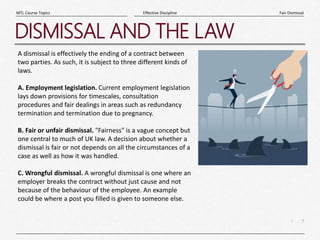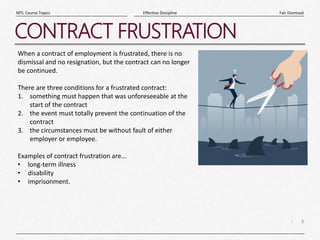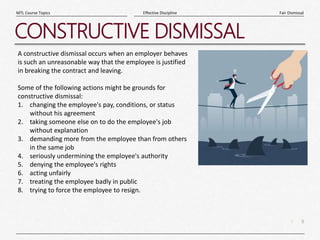The document provides a comprehensive guide on fair dismissal and effective discipline, outlining various reasons for dismissal such as lack of qualifications, misconduct, redundancy, and incapability, while emphasizing the importance of following correct procedures. It details legal considerations, types of misconduct, and factors that can influence the fairness of a dismissal. Additionally, the document addresses employee rights regarding appeals and suggests best practices for handling disciplinary processes.

